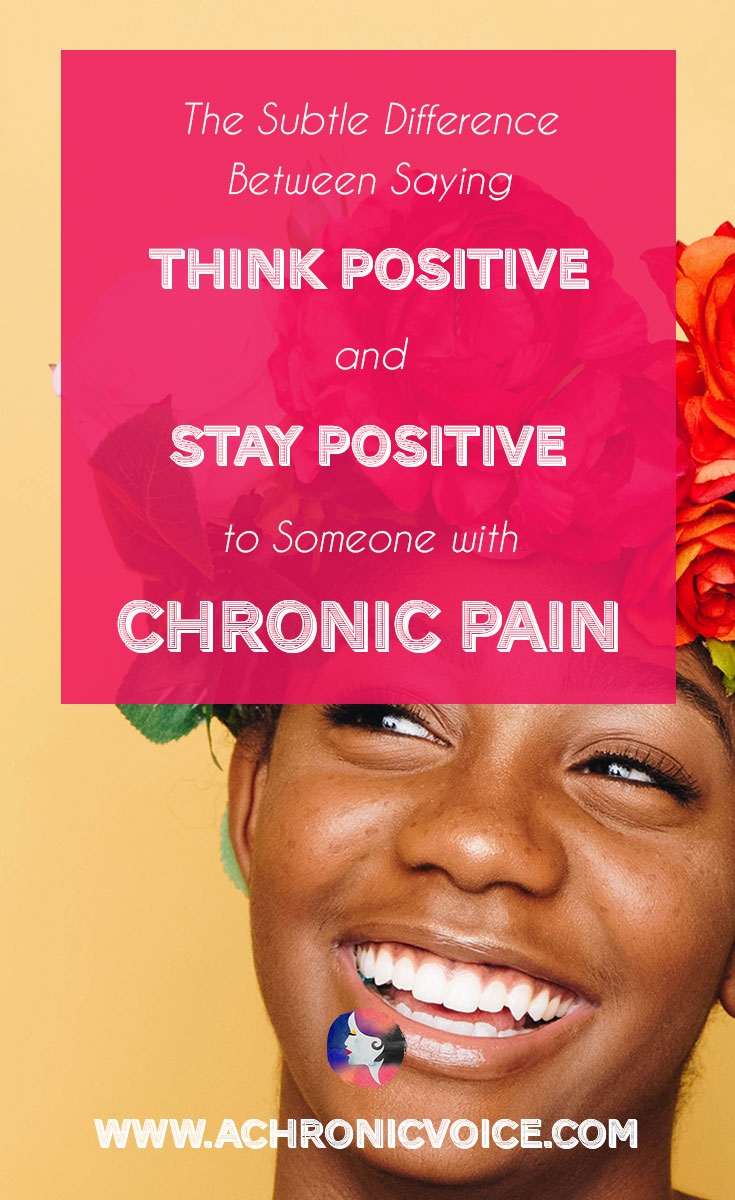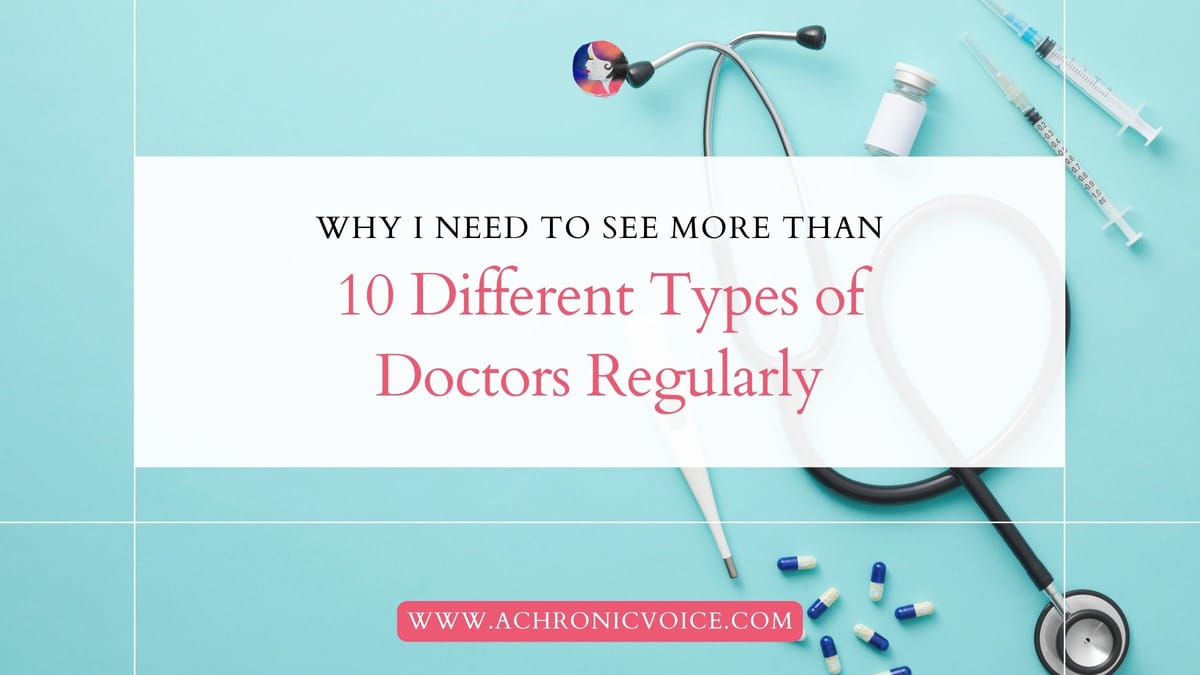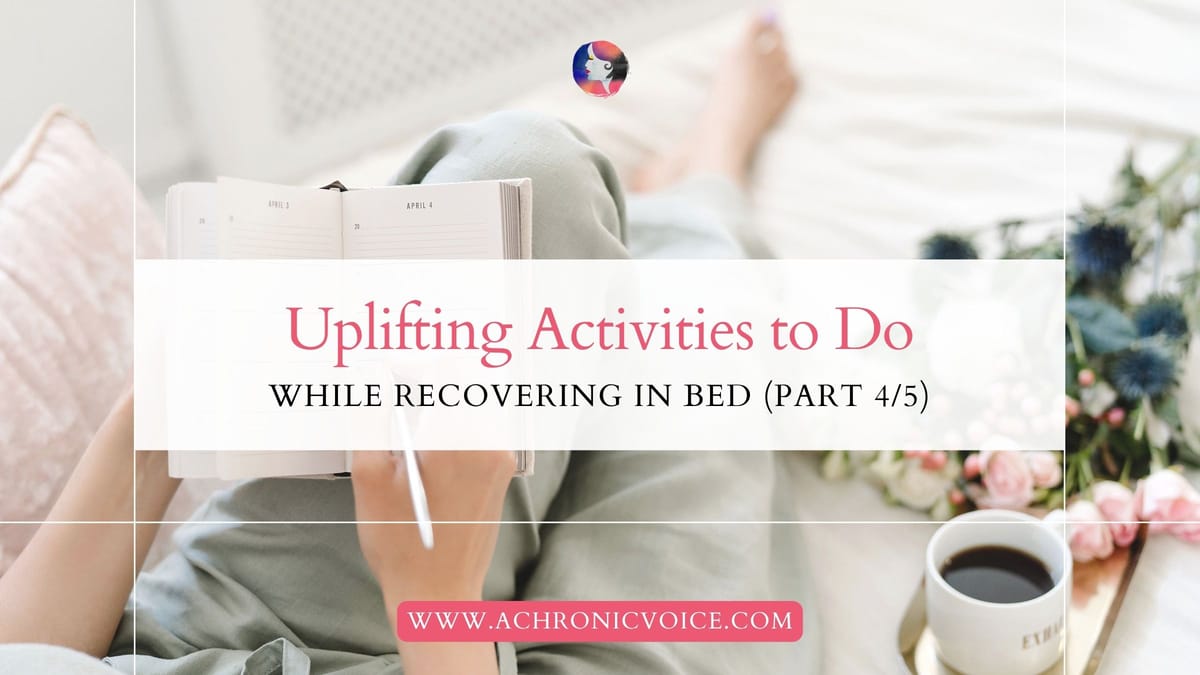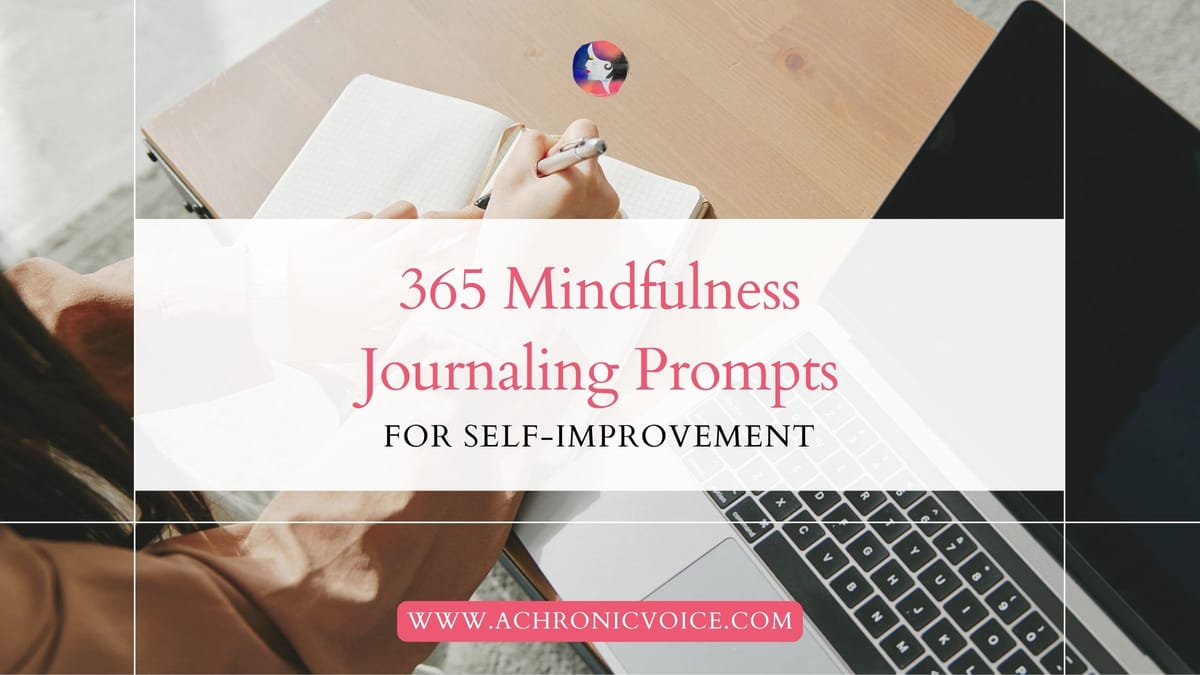“Think Positive” vs “Stay Positive” — Do These Terms Imply Different Mindsets?
I don't know about you but for me, there is a difference when someone tells me to “think positive” as opposed to “stay positive”. The former implies an undermining of suffering, while the latter tells me that you're on my team. Perhaps I have a case of word oversensitivity, but I'll go ahead and tell you more.
*Disclaimer: This article is meant for educational purposes, and is based on my personal experiences as a patient. I am not a doctor, and nothing in this article should be substituted for medical advice. Please consult your own doctor before changing or adding any new treatment protocols. This post may also contain affiliate links. It will cost you nothing to click on them. I will get a small referral fee from purchases you make, which helps with the maintenance of this blog. Read our Privacy Policy page for more information. Thank you!
The Evolution of Thought When in Pain
When I’m in the grips of pain, all I want is freedom from it. When you suffer from pain over a prolonged period, the idea of freedom evolves along with it. Perhaps it began with “I need some painkillers”, to “I need surgery”, to finally become “I want to die”.
Every action is a compromise with yourself. Another keyword difference here is “I want” versus “I wish” to die. I have no desire for death, but at this point it seems like a better option than suffering. If there’s a hell, might as well get on with it.
Encouragement to Stay on Course
When you ask me to stay positive, it almost feels like you’re a teammate who’s reminding me to stay focussed. To keep my eyes on the ‘lifetime’ destination, and to stay on course. There is a subtle acknowledgement that you believe in my pain, and that you’re encouraging me to remain positive despite it. “Stay, don’t go” versus “You’re being negative which isn’t good. Think better thoughts”.
Belief in someone else’s pain is very important; it provides them with a sense of relief because it acknowledges the reality of it. It’s not in their heads, it really is that bad. You can only go about solving a problem when you realise that it exists, and isn’t a fiction of imagination.
Beyond Words — Show Up for Your Loved One
Most people don’t mean you harm when they send their regards. They may not know how to respond because they’ve never had to go through anything like it, and therefore are unable to relate. Perhaps this word difference doesn't mean anything to you - maybe they both invoke anger or sadness, or you like using them interchangeably.
But my intention for today is simply to bring about an awareness that what you say has power; it can lift a person up, or cut pretty deep. And perhaps more than what you say, how you say it and where it's coming from matters most at the end of the day. So if you're trying to comfort a friend for whatever reason and don't know what to say, you can't go too wrong with a sprinkle of empathy and sincerity.
Pin to Your Words, Mindset & Positivity Boards:







Comments Archives:
Comments imported from previous WordPress site.-
Katie Clark
-
Tania
-
Sheryl Chan
-
Nikki
-
Sheryl Chan
-
Emma England
-
Sheryl Chan
-
Cathy
-
Sheryl Chan
-
Shannon|MSnubutterflies
-
Sheryl Chan
-
Caz
-
Sheryl Chan
Start a new conversation in the Member Comments below!I can feel so helpless when I have a friend who is truly suffering. I don’t know what to do or say. But, I do feel that just being there, checking in, letting them know that they are not forgotten. It’s hard because they have to get through it on their own, but we can be there letting them know that we are witnessing what they’re going through and that we care ever so much.
Yes! I feel like “think positive” is so often used in mainstream media and by people who aren’t close to me within a “think positive and you’ll improve” kind of way. As though it’s a mindset keeping people ill rather than physical problems with our bodies. I’ve not seen “stay positive” used before, but I much prefer it to “think positive” for the reasons you’ve given. Xx
Tania | When Tania Talks
Hi Tania,
Yes exactly 🙂 And more often than not, the person who’s ill *is* trying to be positive in his or her own way, despite the struggle. So saying ‘think positive’ can be quite hurtful or discredits his or her efforts, too.
Not sure I like either. Because I can’t stay positive. I have bad days and I am aware on bad days my thoughts are not positive at all. On those days I have to try to just control those thoughts I guess. Or distract myself. But I certainly don’t like ‘think positive’ like if I just thought more positive that would just resolve all my problems. It is funny in a sense. I don’t like it when people tell me to think positive or Be positive but I do a lot of things to try and help myself stay that way myself. And to boost my mood. I am well aware it helps with the pain and my negative thoughts are spurred by high pain. Just don’t like people telling me to, because it isn’t as simple as they think. Especially with major depressive disorder. My brain doesn’t really go positive first, sort of have to steer it that way!
Heh I’m quite similar in the sense whereby I dislike people telling me to ‘think positive’ but on my own, I do try to do so 😉 I can see where you’re coming from regarding the major depressive disorder and positive thoughts. Almost like it’s an unnatural thing that needs some prodding and guidance. And yea, things aren’t always as they seem, especially with what you mentioned. Hard for people to see, which is fine. But it’d be great if they could then keep their comments to themselves hey 😉
This is so true. There’s a massive difference between “think positive” and “stay positive.” Glad you picked up on (and wrote about!) how a subtle change in the way we say things can make such a big difference. You hit the nail on the head when you say how belief in someone’s pain is so important. It really does bring such relief. Thanks for writing this ?
Thanks for reading, Emma! 🙂 Yes actually I wasn’t sure if others thought this way too, as I’ve seen many articles on The Mighty which mention that they don’t like the usage of either (I linked up to one of them at the bottom of this article). In any case, belief and empathy is key! xx
You taught me something important. I have RA and will now encourage my fellow autoimmune friends the way you so eloquently suggested. Stay positive has a warmer, more comforting vibe. Thanks for writing this post!
Hi Cathy,
Thank you so much for your feedback 🙂 Yes I also think it has a warmer, more comforting vibe to it – thanks for capturing the emotion of what I meant! x
I agree with you. The difference of how you say it means everything. I also try to remember that they don’t realize how it sounds and that I’m probably guilty of the same thing sometimes. This is a great post. I hope it will help others understand the difference.
Hi Shannon,
Thanks for your perspective! Yes what you said is so true as well. People often don’t have ill intentions, but having never been in our shoes, it can be easier to say something ‘offensive’ than not unintentionally. I admit to being guilty of being the same way as well…I suppose we’re all ignorant in one way or another 😉 😉
Agreed, great post as it does highlight ignorance (whether intentional or not) and how sometimes we need to think about why people say the things they do too (I think sometimes it’s said because people don’t know what else to say, feel they need to say something and this ends up coming out…) x
Hi Caz,
Yes quite often I guess they’re saying something for the sake of saying something. As Viktor Frankl wrote, our current society is wired to always desire and seek happiness, to the point where sad or bad feelings are almost demonised, or ignored.